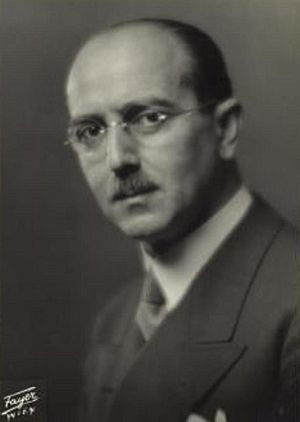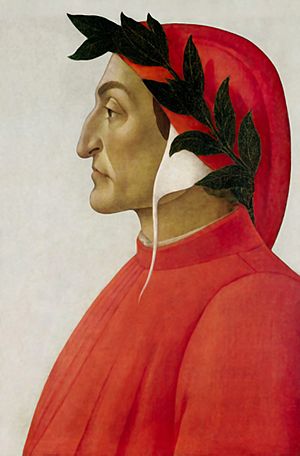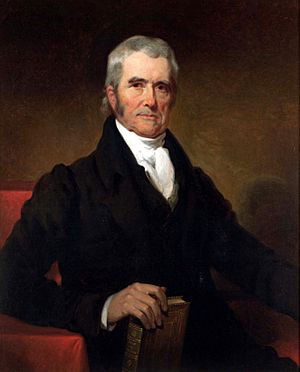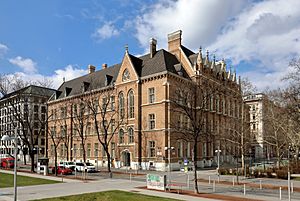Hans Kelsen facts for kids
Quick facts for kids
Hans Kelsen
|
|
|---|---|

Kelsen c. 1930
|
|
| Born | October 11, 1881 |
| Died | April 19, 1973 (aged 91) Berkeley, California, U.S.
|
| Education | University of Vienna (Dr. iur., 1906; habilitation, 1911) |
| Era | 20th-century philosophy |
| Region | Western philosophy |
| School | Legal positivism |
| Institutions | University of Vienna University of Cologne Institut universitaire de hautes études internationales University of California, Berkeley |
| Thesis | Hauptprobleme der Staatsrechtslehre entwickelt aus der Lehre vom Rechtssätze (1911) |
| Doctoral students | Eric Voegelin Alfred Schütz |
|
Main interests
|
Public law International law Philosophy of law |
|
Notable ideas
|
Pure theory of law Basic norm |
|
Influences
|
|
Hans Kelsen (October 11, 1881 – April 19, 1973) was an important Austrian jurist (a legal expert), legal philosopher, and political thinker. He is famous for writing the 1920 Austrian Constitution, which is still used today.
Kelsen had to leave Austria in 1930 because of political changes. He moved to Germany, but then had to leave there too in 1933 because of the Nazis and his Jewish background. He went to Geneva, Switzerland, and later to the United States in 1940. A famous legal scholar, Roscoe Pound, called Kelsen "undoubtedly the leading jurist of the time" in 1934.
Kelsen was well-known in the United States for supporting democracy and for his "Pure Theory of Law." His ideas were important in many fields, including law, politics, and how countries interact. Even after he officially retired in 1952, Kelsen kept working. He rewrote his famous book, Reine Rechtslehre (Pure Theory of Law), which was published in 1960.
Contents
Hans Kelsen: A Legal Thinker
Early Life and Education
Kelsen was born in Prague into a German-speaking Jewish family. His family moved to Vienna when he was three years old. He studied law at the University of Vienna. He earned his law degree in 1906.
Kelsen changed his religion twice in his life. First, he became a Roman Catholic in 1905. Later, in 1912, he and his wife, Margarete Bondi, became Lutherans. They had two daughters together.
Building Austria's Laws
Kelsen's first book, written in 1905, was about political ideas in Dante's writings. This study looked closely at how power was shared between the Pope and rulers in the past. Kelsen's ideas about government and law started to form during this time.
In 1911, Kelsen became a university lecturer in public law and legal philosophy. He wrote a major work called Main Problems in Theory of Public Law. In 1919, he became a full professor at the University of Vienna.
Kelsen helped write the new Constitution of Austria, which was put into law in 1920. This document is still the foundation of Austrian law. Kelsen was appointed to the Constitutional Court for life. This court checks if laws follow the constitution.
During the 1920s, Kelsen wrote many important books about government, public law, and international law. He believed that law and the state (government) were the same thing. This idea was different from others who thought the state was more important than the law.
Kelsen's idea of a separate constitutional court, which he helped create in Austria and Czechoslovakia in 1920, became a model for many other countries in Europe. This court's job is to make sure laws are fair and follow the constitution.
However, Kelsen faced political pressure in Austria. He was removed from the Constitutional Court in 1930. This happened because of disagreements about how to interpret laws, especially regarding divorce.
Facing Challenges in Europe
In the early 1930s, Kelsen strongly defended the idea of judicial review. This means courts can check if laws are constitutional. He argued against people like Carl Schmitt, who wanted a strong, authoritarian government without legal limits. Kelsen wrote an essay in 1931 called "Who Should Be the Guardian of the Constitution?" where he explained why courts should protect the constitution.
Kelsen became a professor at the University of Cologne in Germany in 1930. But when the Nazis came to power in 1933, he was forced to leave his job because he was Jewish. He moved to Geneva, Switzerland, where he taught international law.
In 1934, Kelsen published the first edition of his famous book, Pure Theory of Law. While in Geneva, he became very interested in international law. He believed that international laws needed clear rules and ways to enforce them. He also taught briefly in Prague before returning to Geneva until 1940.

Moving to America
In 1940, Kelsen and his family left Europe for the United States. He gave important lectures at Harvard Law School in 1942. In 1945, he became a professor at the University of California, Berkeley.
Kelsen believed that the idea of justice is separate from how positive laws (laws actually made by governments) are applied. He argued that justice is an "irrational ideal" that cannot be fully understood by logic alone.
Kelsen's work also influenced the trials of political and military leaders after World War II, like the Nuremberg Trials. He had spent many years researching war crimes. He wrote essays about how international law should deal with war criminals.
In 1950, Kelsen published a long book about the United Nations. He also wrote Principles of International Law in 1952. In 1955, he wrote an essay called "Foundations of Democracy," where he strongly supported Western democracy.
Kelsen's Big Idea: Pure Theory of Law
Kelsen is seen as one of the most important legal thinkers of the 20th century. His ideas have had a big impact on legal scholars, especially in Europe and Latin America.
What is the Pure Theory of Law?
Kelsen's Pure Theory of Law tries to describe law as a system of rules that are connected in a hierarchy (like a pyramid). It aims to understand law as it is, without judging whether it is good or bad. Kelsen believed that "legal science" (studying law) should be separate from "legal politics" (deciding what laws should be).
A key part of this theory is the idea of a "basic norm" (Grundnorm). This is a hypothetical (imagined) rule at the very top of the legal system. All other laws, from the constitution downwards, get their authority from this basic norm. This means a law is valid if the group that created it was given power by a higher law. Kelsen argued that this way, the validity of laws doesn't need to come from a religious source or a personified state. The Pure Theory is a strict form of legal positivism, which means it focuses only on laws that are actually made and enforced, not on ideas of "natural law."
Kelsen's main book on this theory, Reine Rechtslehre, was published in two editions. The first was in 1934, and a much larger second edition came out in 1960.
Kelsen's Impact on Law
Kelsen's ideas have been very important, especially in Austria and Czechoslovakia. In English-speaking countries, his influence can be seen in the work of other legal thinkers like H. L. A. Hart and Joseph Raz.
Kelsen also wrote a book called Secular Religion, which was published after his death. In it, he defended modern science against those who wanted to mix science with religion. He argued for keeping state and religion separate.
Kelsen made four main contributions to legal theory:
How Courts Review Laws
Kelsen helped develop the idea of judicial review in Europe. This is where a special court checks if laws follow the constitution. He based this on the American system, but he made it more specific for Austria and Czechoslovakia. Kelsen himself served on Austria's judicial review court for almost ten years.

Laws in a Hierarchy
Kelsen saw law as a hierarchy, like a ladder or pyramid. This means laws are organized in levels, with some laws being "higher" than others. This idea helped him explain how laws are structured and how they get their authority. At the very top of this hierarchy is the "Basic norm" (Grundnorm).
Keeping Law Separate from Other Ideas
In Kelsen's time, the idea of "natural law" was often mixed with religion, philosophy, or politics. Kelsen believed this made it hard to have a clear understanding of law. He wanted to define "positive law" (laws made by humans) clearly. He aimed to remove confusing ideas from the study of law.
Law as a Science
Kelsen wanted to make the study of law a true science. He wrote books explaining the differences between natural sciences (like physics) and legal sciences. He believed that legal science should focus on how rules work, not on causes and effects like in natural science. He wanted to remove unclear or ideological parts from modern law.
Kelsen's Ideas on Government
Kelsen's political ideas were very important throughout his life. He focused on five main areas:
What is Sovereignty?
Kelsen spent a lot of time thinking about what "sovereignty" means. Sovereignty is the idea that a state has supreme power within its own borders. For Kelsen, understanding sovereignty was key to understanding international law. He believed that too much emphasis on absolute sovereignty could make it harder for international laws to work effectively.
Law and State: One Idea
Kelsen believed that law and the state (government) were essentially the same thing. He saw the state as a system of laws. This was a very functional way of looking at the state, which he felt was necessary for modern law to develop properly.
State and Society: Different Roles
Even though Kelsen saw law and state as one, he also believed it was important to keep the state separate from society. Society, for Kelsen, was where ideas like philosophy, religion, and art could be discussed freely. He thought that while the state regulates society through laws, society should have space for open debate on topics like justice.
Centralized vs. Decentralized Laws
Kelsen often discussed how laws can be centralized (controlled from one main point) or decentralized (spread out). He saw centralization as a sign of more modern and developed legal systems. The "Basic norm" in his theory is a central point of origin for all laws.
How Laws Change (Dynamic Theory)
Kelsen's "dynamic theory of law" explains how laws are created and changed. This process happens through political discussions and decisions in society. He saw this as a very important part of how a legal system works and adapts over time.
Remembering Kelsen
After Kelsen's 90th birthday, the Austrian government created the "Hans Kelsen-Institut" in 1972. This institute collects and shares information about Kelsen's "Pure Theory of Law." It also publishes his works, including some that were not published during his lifetime.
In 2006, the Hans Kelsen Research Center was founded in Germany. This center also works to publish a complete collection of Kelsen's writings.
Awards and Recognition
- 1938: Honorary Member of the American Society of International Law
- 1953: Karl Renner Prize
- 1960: Feltrinelli Prize
- 1961: Grand Merit Cross with Star of the Federal Republic of Germany
- 1961: Austrian Decoration for Science and Art
- 1966: Ring of Honour of the City of Vienna
- 1967: Great Silver Medal with Star for Services to the Republic of Austria
- 1981: Kelsenstrasse (a street in Vienna) was named after him.
Images for kids
See also
 In Spanish: Hans Kelsen para niños
In Spanish: Hans Kelsen para niños
- Legal positivism
- List of Austrian scientists
- List of famous Austrians
 | Calvin Brent |
 | Walter T. Bailey |
 | Martha Cassell Thompson |
 | Alberta Jeannette Cassell |



